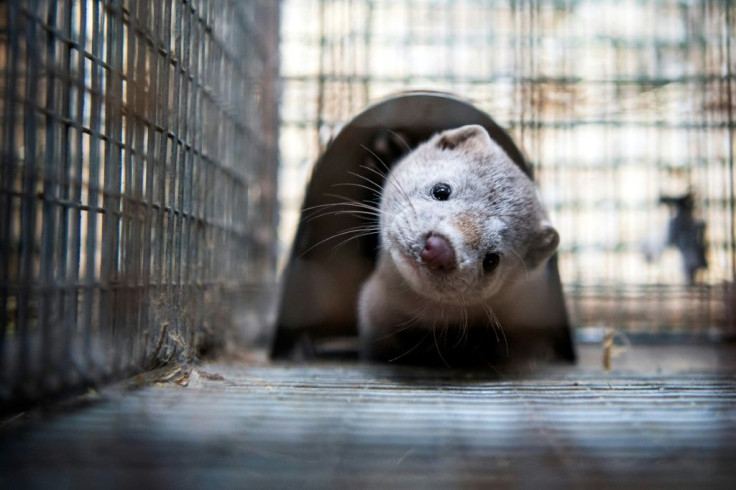Utah Mink Farm COVID-19 Update: PETA Calls For Shutdown After Animal Infections
KEY POINTS
- Last week, several minks in Utah tested positive for COVID-19
- It remains unknown as to how the minks got infected
- There is also no indication or proof of any mink-to-human transmission
Animal rights activists have urged Utah officials to shut down all the mink farms in the state after several of the species tested positive for COVID-19 earlier this week.
It’s “a move that would protect the health of workers and Utah residents, as well as sparing countless minks a miserable death for fur,” Ingrid Newkirk, president of People for the Ethical Treatment of Animals (PETA), wrote in a letter to the Utah Department of Health.
“Filthy fur farms — or animal factories — are packed with sick, stressed and injured animals and are breeding grounds for disease,” Newkirk wrote, adding that mink farms are configured in a way that creates “the perfect conditions for the spread of contagious diseases.” Utah is the second-largest producer of mink pelts among more than 200 farms in the United States.
At least five minks at two Utah farms are known to have been infected with SARS-CoV-2, the virus known to cause COVID-19. The coronavirus-positive Utah minks are the first of such species to carry the deadly virus.
However, they are not the first animals in the state to test positive for SARS-CoV-2. The United States Department of Agriculture revealed two dogs and four cats tested positive for coronavirus July 22. At least one tiger and one lion at a zoo in New York were also found to have SARS-CoV-2 in early April.
“At this time, there is no evidence that animals play a significant role in spreading the virus that causes COVID-19,” according to the Centers for Disease Control and Prevention.
Last week, Dr. Dean Taylor, a veterinarian from the Utah Department of Agriculture and Food, said that two farms in the state observed a significant increase in deaths among their mink populations. The cases of mink deaths prompted state officials to test the animals for the presence of SARS-CoV-2. It was not revealed which two farms were affected or their exact location in the state.
"We've been in contact with the industry and we're working with them to put together best practices, so they can avoid this," Taylor said, adding that they now know mink is among the more vulnerable species. It, however, still remains unknown as to how the minks got infected. There is also no indication or proof of any mink-to-human transmission.

© Copyright IBTimes 2024. All rights reserved.





















